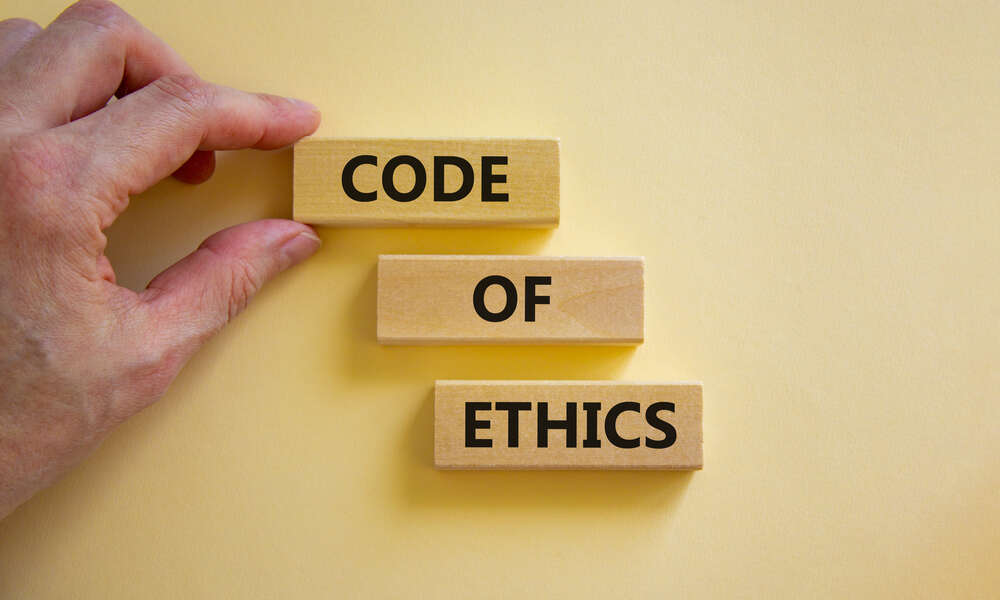
Is Your Code of Ethics Fulfilling Its Purpose?
Thinking about why your code of ethics exists can help you build one that matters more for members—and ensure it can adapt to the times.
A code of ethics is often discussed in mechanical terms—how to build it, how to keep it up to date, and how it affects management decisions. But this document represents something intrinsic to your organization.
There is more than a “how” behind it. There is a “why”—as in, why is a code of ethics important in the first place?
That answer can take many forms. For example, Lindsay Childress-Beatty, CAE, interim director of ethics for the American Psychological Association (APA) and chair of ASAE’s Ethics Committee, says that ethics play an important role in how the organization and its staff interact with the outside world.
“The code of ethics really helps to build culture. I think it helps to elevate the reputation of the association,” she said. “It does heighten the issue of ethics for employees, which is part of that building culture.”
Paul Schempp, a leadership expert and founder of Performance Matters, Inc., says that the code also plays an important role in the way members approach the organization, empowering them to make ethical decisions about what they do every day. “It helps clarify what’s right and what’s wrong,” Schempp said. “Oftentimes, we’re not really sure, and a code of ethics could help empower us to know what’s right and what’s not, relative to our profession.”
Approaches can differ by type of organization and by need. Even within the same organization, demands vary: APA has a professional code of ethics for members practicing psychology, on top of organizational policies about how volunteers interact with each other and how APA staff interacts with the outside world and its own membership—but ultimately the goal is to set firm standards.
“I think it also helps those members to believe that they joined an association that is going to interact in the world in an ethical way, and that’s a real positive for the members,” Childress-Beatty said.
Level-Setting the Purpose of Your Code of Ethics
Schempp says that members should be involved in the creation of an ethical code, in part because association leadership may not be as deeply familiar with the profession as members might be. Additionally, the code needs to be embraced by those it represents.
“I think they need to be committed to living up to the code, and that requires being familiar with it—which to me means that most of the time, they should be fairly short,” he said.
Having the right values in place helps to shape its function and tactics, Childress-Beatty said.
“Some of the other parts of the code will even help you legally, for example, because now you have on record a policy about how you treat vendors, or how you treat what gifts you accept, or sexual harassment. All have a legal aspect to them as well,” she said.
She recommended a close look at ASAE’s Ethics Toolkit, which was assembled by ASAE’s Ethics Committee.
How a Code of Ethics Adapts to the Times
What seemed to make sense ethically years ago may not be quite so acceptable now—and that can require changes in policy. Childress-Beatty noted how alcohol, for example, was once served at board meetings, a practice that has faded culturally. But ultimately, the core values don’t usually fluctuate.
“I think you’re really looking at, ‘What does this association stand for, what are our values, what are the central core values?’” she said, adding that the code of ethics should help to operationalize those values. “We want to make sure we have a statement on how to handle this particular thing that flows from those values.”
Schempp points to two areas where ethics codes might need to evolve—a change in law that impacts a specific professional group, or a significant change in culture, such as that seen during the COVID-19 crisis. But he says that whatever the case, it should be periodically reviewed for potential updates.
“Let’s just do this on a regular basis,” he said. “Let’s take a look every three years or every five years, just as a regular routine.”
Childress-Beatty added that modifying elements of the ethics code will likely happen from time to time as missing elements become more clear.
“It should be living and breathing and subject to changes over time,” she said. “But at the same time, that core, underlying value usually doesn’t really shift as much.”
(Dzmitry Dzemidovich/iStock/Getty Images Plus)






Comments